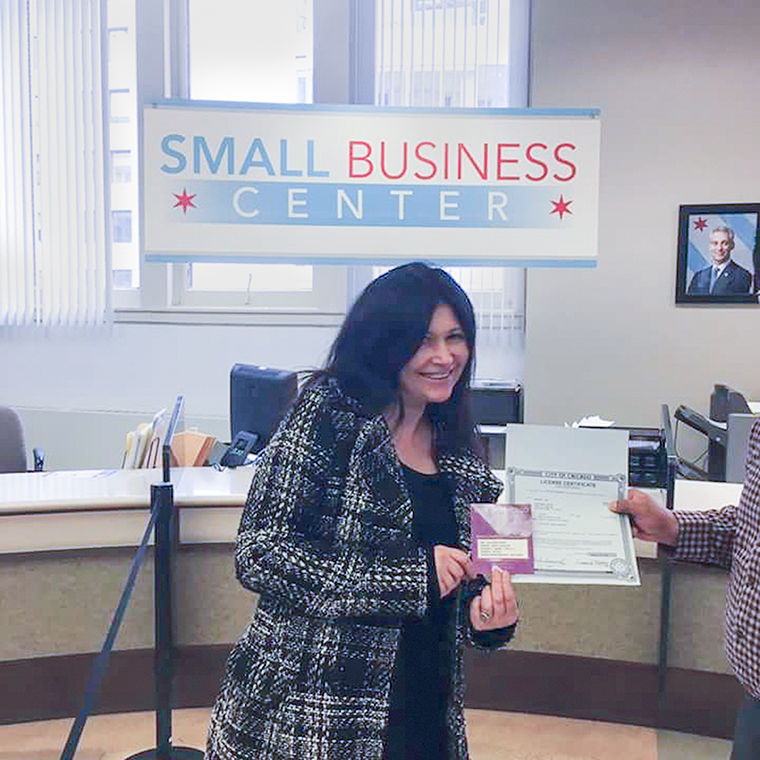Notable Native:Danka Marinkovic
Danka Marinkovic is the owner and creator of Melissa’s Pal Crépes, the first legal street cart in Chicago. Marinkovic hopes to one day own a permanent kiosk on State Street.
April 25, 2016
A
fter realizing opening the first legal street food cart in Chicago would be a reality, Danka Marinkovic, owner of Melissa’s Pal Crépes, decided to close her other businesses including a gallery and salon, both located in River North, to focus on her food cart.
Marinkovic, who emigrated from the former Yugoslavia and present-day Bosnia, said her Serbian heritage influences her cooking. She said she is the only one in her company who knows the recipe for the crepes.
Marinkovic also sells a range of healthy foods, such as pasta bowls, fruit cups and chopped salads. She said everything she serves is fresh and local. Any leftovers are donated or handed out to the homeless.
The Chronicle spoke with Marinkovic about launching her food cart, the idea behind her business and her plans for the future.
THE CHRONICLE: How does it feel to be the first legal street food cart operator in Chicago?
DANKA MARINKOVIC: It feels a bit strange. It makes me happy—not because we’re the first food cart, but because I’m a single mom. There are a couple of reasons why I hope the business is successful, aside from offering healthy, fresh, local food really fast. I hope it works because we’re doing something nice for the community. It’s a lot of work, and hopefully, it will be something that expands that maybe my kids could take over in the future.
What inspired you to open Melissa’s Pal Crépes?
I remember as a kid, when I first came to America, seeing a roasted chestnut vendor right around the Marshall Field’s Christmas window, and I thought it was so beautiful. For some strange reason, that always stuck in my mind.
[When] I had an art gallery [and] hair salon, and we were hanging out one winter morning, and my kids asked my mom to make some crepes, and you know we grew up with crepes—it’s like a peanut-butter and jelly sandwich for us. And I just said “Why don’t we take these crepes out on the street and sell them? Everybody loves crepes.”
My mom started laughing at me, and then I started doing research. Then we started with the farmers market, and we hooked up with a couple of companies that do corporate catering. We [still] do corporate catering, which is doing fresh crepes on- site. I’ve been watching and doing research, and then last year, when I saw they became legal, I just jumped at the chance.
What are some of the unique challenges that come with owning a food cart?
For me, it is the public approval. This is like a baby that you nurture when you develop it from beginning to when you’re actually allowed to be out on the street. What I’ve noticed and what my friends have laughed at me about is if somebody looks at the cart the wrong way, I start getting stressed out, so I think it’s basically the public’s approval. That, to me, is what’s most important.
What is next for your business?
I still have this desire to have a permanent kiosk right under the clock on State Street by the old Marshall Field’s building by Macy’s, but that would be a long-term goal. I would really like to have a permanent structure there for some strange reason, however; we’re developing a new cart and hopefully bringing it out on the streets this summer. I would like it to be a little more streamlined, [but] there really isn’t anything available in the United States that I’ve seen like what they have in Europe and in Asia.








